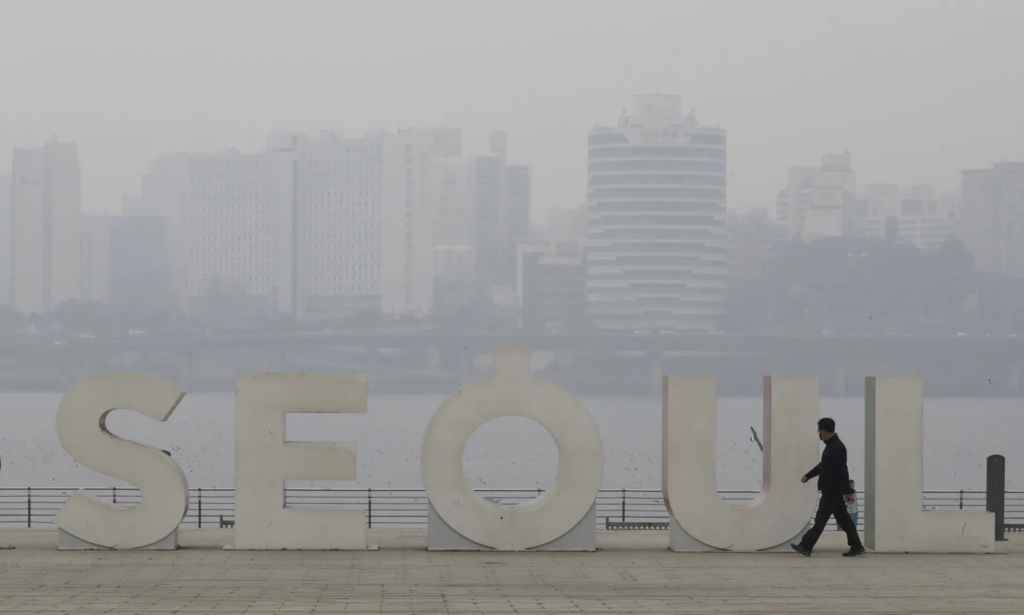“Social disaster”: South Korea invokes emergency laws to tackle air pollution after record pollution levels hit the country

By Justin McCurry
13 March 2019
(The Guardian) – South Korea has passed emergency measures to tackle the “social disaster” being unleashed by air pollution, after record levels of fine dust blanketed most of the country in recent weeks.
The national assembly passed a series of bills on Wednesday giving authorities access to emergency funds for measures that include the mandatory installation of high-capacity air purifiers in classrooms and encouraging sales of liquified petroleum gas vehicles, which produce lower emissions than those that run on petrol and diesel.
The measures will give government officials access to a US$2.65bn emergency fund, as criticism mounts of President Moon Jae-in’s failure to tackle the crisis.
Air pollution has become a key political issue after the concentration of fine dust particles surged to record levels in many parts of the country last week, according to South Korean media.
Seven major cities suffered record-high concentrations of dangerous PM 2.5 particles, according to the National Institute of Environmental Research.
The World Health Organization has warned that air pollution poses a major public health risk due to its links with a host of respiratory and cardiovascular illnesses.
Seoul has already introduced emergency measures, such as limiting vehicle use, curbing the use of coal-fired power stations and cutting the amount of dust generated by building sites and power plants. But they have had little success.
The crisis has also created friction with China, which South Korean public health experts say is responsible for between 50% and 70% of fine dust pollution in the Seoul area, home to almost half the country’s population. Experts say the particles, from Chinese deserts and factories, are carried to the Korean peninsula by prevailing westerly winds. [more]
‘Social disaster’: South Korea brings in emergency laws to tackle dust pollution